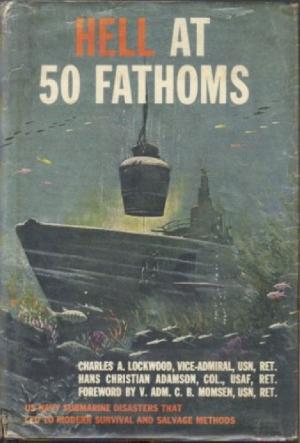| Author: | Major William Bland Allen IV | ISBN: | 9781782894254 |
| Publisher: | Verdun Press | Publication: | August 15, 2014 |
| Imprint: | Verdun Press | Language: | English |
| Author: | Major William Bland Allen IV |
| ISBN: | 9781782894254 |
| Publisher: | Verdun Press |
| Publication: | August 15, 2014 |
| Imprint: | Verdun Press |
| Language: | English |
The relief of Major General Ralph Smith, U.S. Army, from the command of the 27th Infantry Division during the battle for Saipan on 24 June 1944 by Lieutenant General Holland M. Smith, U.S. Marine Corps, seemingly ignited a slow-burning fuse of service competition, jealousy, and animosity that some say is still burning bright today...Nearly seventy years later, the question is still a topic of debate. Was Lieutenant General Holland Smith justified in relieving Major General Ralph Smith? Holland Smith’s justifications centered on Ralph Smith’s apparent disregard of orders and perceived inability to lead his division in combat. Historical appraisals of this relief have most often focused on either Army or Marine Corps doctrines in place at the time of the battle for Saipan. Instead of comparing and contrasting doctrines from the Second World War, this monograph appraises Lieutenant General Holland Smith’s effectiveness as a corps level commander and the factors influencing his decision to relieve Major General Ralph Smith using today’s doctrinal combat power assessment from the Army’s Operations, FM 3-0 Change 1...This monograph evaluates the justifications based on today’s standards of combat power analysis, focusing on only three of the eight elements of combat power: military intelligence, mission command, and leadership. The flawed military intelligence assessment of the enemy’s strengths and capabilities at two pieces of key terrain, the unclear operational orders in the midst of battlefield friction, and the underappreciated leadership abilities of Ralph Smith all contributed to Holland Smith’s reasoning for relieving the Army division commander. In viewing the relief through the elements of today’s combat power application, Holland Smith’s decision appears premature and the justifications that Ralph Smith disregarded orders and lacked leadership are not fully substantiated when weighed against this monograph’s methodology.
The relief of Major General Ralph Smith, U.S. Army, from the command of the 27th Infantry Division during the battle for Saipan on 24 June 1944 by Lieutenant General Holland M. Smith, U.S. Marine Corps, seemingly ignited a slow-burning fuse of service competition, jealousy, and animosity that some say is still burning bright today...Nearly seventy years later, the question is still a topic of debate. Was Lieutenant General Holland Smith justified in relieving Major General Ralph Smith? Holland Smith’s justifications centered on Ralph Smith’s apparent disregard of orders and perceived inability to lead his division in combat. Historical appraisals of this relief have most often focused on either Army or Marine Corps doctrines in place at the time of the battle for Saipan. Instead of comparing and contrasting doctrines from the Second World War, this monograph appraises Lieutenant General Holland Smith’s effectiveness as a corps level commander and the factors influencing his decision to relieve Major General Ralph Smith using today’s doctrinal combat power assessment from the Army’s Operations, FM 3-0 Change 1...This monograph evaluates the justifications based on today’s standards of combat power analysis, focusing on only three of the eight elements of combat power: military intelligence, mission command, and leadership. The flawed military intelligence assessment of the enemy’s strengths and capabilities at two pieces of key terrain, the unclear operational orders in the midst of battlefield friction, and the underappreciated leadership abilities of Ralph Smith all contributed to Holland Smith’s reasoning for relieving the Army division commander. In viewing the relief through the elements of today’s combat power application, Holland Smith’s decision appears premature and the justifications that Ralph Smith disregarded orders and lacked leadership are not fully substantiated when weighed against this monograph’s methodology.

![Cover of the book In the Ypres Salient, The Story of a Fortnight’s Canadian Fighting, June 2-16 1916 [Illustrated Edition] by Major William Bland Allen IV](https://www.kuoky.com/images/2013/march/300x300/9781782890638-oq1X_300x.jpg)
![Cover of the book Angels Of Armageddon: The Royal Air Force In The Battle Of Megiddo [Illustrated Edition] by Major William Bland Allen IV](https://www.kuoky.com/images/2014/august/300x300/9781782894414-HKrg_300x.jpg)


![Cover of the book Attack Transport; The Story Of The U.S.S. Doyen [Illustrated Edition] by Major William Bland Allen IV](https://www.kuoky.com/images/2015/november/300x300/9781786252630-aDmV_300x.jpg)



![Cover of the book The Long Road To Victory [Illustrated Edition] by Major William Bland Allen IV](https://www.kuoky.com/images/2014/august/300x300/9781782892687-k2po_300x.jpg)

![Cover of the book From Gallipoli To Baghdad [Illustrated Edition] by Major William Bland Allen IV](https://www.kuoky.com/images/2014/august/300x300/9781782895541-9iCj_300x.jpg)



![Cover of the book NEW ZEALAND DIVISION 1916-1919. The New Zealanders In France [Illustrated Edition] by Major William Bland Allen IV](https://www.kuoky.com/images/2014/june/300x300/9781782892427-VkWo_300x.jpg)